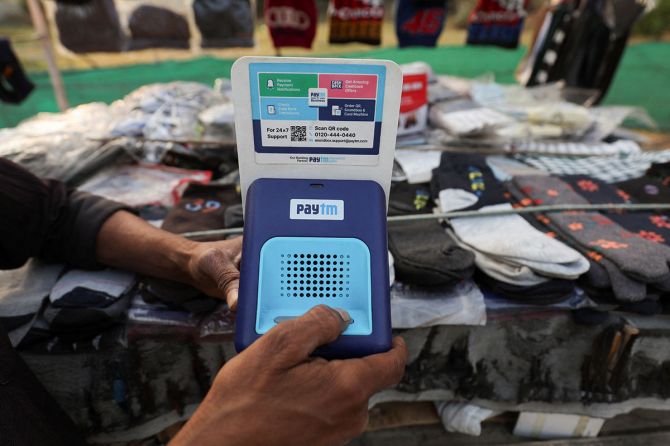Paytm, the country’s leading fintech player which had to shut its payment bank business following regulatory action, is revisiting its business strategy including partnership with lenders.

Also, the company’s founder and chief executive officer (CEO) Vijay Shekhar Sharma has decided to oversee the day-to-day operations with all the major verticals reporting directly to him now.
“The thing on top of everyone’s agenda is getting the core businesses back on track,” a person in the know said.
Paytm did not comment on the specific verticals Sharma is directly overseeing.
His return to day-to-day operations comes after multiple senior-level exits in the past few weeks.
In May, Bhavesh Gupta, president and chief operating officer (COO) of Paytm, resigned citing personal reasons.
Before that, there were others who quit including Paytm Payments Bank's managing director and CEO Surinder Chawla. One97 Communications (OCL), the company that operates Paytm, is trying to regain the lost ground by doubling down its focus on payments, and adopting a distribution-first approach for financial services.
Sharma is banking on the technology and a distribution network that his firm built over a period of 14 years.
“We will do what our partners are interested in. Our technology and distribution becomes our moat,” he told analysts, after the firm's Q4FY24 results.
This is also evident in the recent decision of the firm to withdraw its application for registration as a general insurance company.
Instead, it plans to focus on the insurance distribution portfolio built by Paytm Insurance Broking Private Limited.
Meanwhile, Paytm has said it will steer away from non-core operations such as cross border business and software as a service (SaaS) to banks, and focus on trimming its employee costs.
The company will trim its employee costs and expects annualised people cost savings of Rs 400-500 crore.
The company reported a wider consolidated loss of Rs 549.6 crore in the fourth quarter (Q4) of 2023-24 (FY24) compared to Rs 168.4 crore in the same quarter last year.
Payment margins
A decline in transactions has led to a squeeze in the company’s net payment margins.
A cumulative decrease in monthly transacting users (MTUs) and gross merchandise value (GMV) on account of the disruption of Paytm PB products such as wallet, and user attrition may have contributed to a decline in the company’s net payment margin (excluding UPI incentives).
This also impacted its revenue from payments and financial services last quarter.
“As stated during our FY24 results, we will continue to double down on our core business of payments.
"Our recent partnership with four banks on UPI is testament of our commitment towards ensuring sustained growth in digital payments, and driving financial inclusion in the country,” a Paytm spokesperson said in response to Business Standard’s queries.
“The two big strengths Paytm always had were payments and distribution, since the days of demonetisation.
"Payments continues to be their core proposition, and they have built up a very large distribution network, digitally and physically, across both merchants and consumers,” said Ranadurjay Talukdar, partner & payments sector leader, EY India.
Due to pressure of valuations, startup/newage companies tend to pick up happening businesses, spend a lot of money, and when they come under pressure either from the regulators or investors, they abandon some businesses, wind up, take losses, etc. and move on, according to Deepak Jasani, Head of Retail Research at HDFC Securities.
"So, this is what will keep happening in other companies also,” Jasani said.
Distribution-first approach
The focus on distribution-first approach is visible in a similar approach the company has taken in the disbursement of personal loans.
It has moved away from a mixed strategy where Paytm engaged in collections as well as distribution for its lenders.
This comes as the total value of its loan disbursements has fallen by over 53 per cent Y-o-Y. It has completely paused the disbursement of its buy now, pay later product; Paytm Postpaid.
“We have taken a call that till the time market comes back, we will not do collection-incentive led volume on (personal loans) side,” Sharma told analysts.
However, the firm continues to use a mix of distribution-collection approach when it comes to merchant loans.
Despite negligible disbursements in February after Paytm paused its lending operations, merchant loan disbursements are growing back at the company.
They are close to their January 2024 levels — the month of the regulator’s action.
In April 2024, Paytm disbursed Rs 971 crore in merchant loans, close to its January figures of Rs 1,132 crore for the same category.
However, despite visible growth in these numbers, the management is treading with caution.












